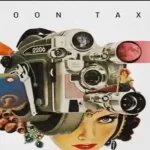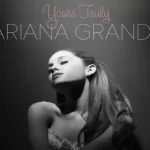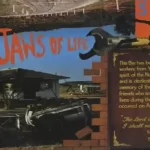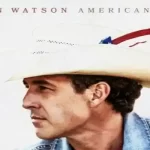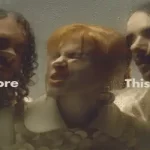Punk music is a genre known for its raw energy, rebellious attitude, and do-it-yourself ethos. Since its emergence in the 1970s, punk has left an indelible mark on the music scene and continues to inspire and influence artists to this day.
In this in-depth article, we will explore the various aspects of punk music, including its songs, artists, examples, characteristics, stylistic origins, cultural origins, and derivative forms. By examining these elements, we can gain a comprehensive understanding of punk music and its significance in the realm of popular music.
Punk Music Songs
Punk music is defined by its fast-paced, aggressive sound and its often politically charged lyrics. Punk songs typically feature short, punchy compositions with simple chord progressions and catchy hooks. The lyrics often tackle social and political issues, expressing frustration and dissent.
Some notable punk songs include “Anarchy in the U.K.” by the Sex Pistols, “Blitzkrieg Bop” by the Ramones, and “London Calling” by The Clash. These songs are considered iconic and have become anthems for the punk movement.
Punk Music Artists
Punk music has seen the rise of numerous influential artists who have shaped the genre and left a lasting impact on the music industry.
| Artist | Genre | Notable Songs |
|---|---|---|
| Ramones | Punk Rock | “Blitzkrieg Bop,” “I Wanna Be Sedated,” “Rockaway Beach” |
| The Clash | Punk Rock | “London Calling,” “Should I Stay or Should I Go,” “Rock the Casbah” |
| The Misfits | Horror Punk | “Last Caress,” “Die, Die My Darling,” “Hybrid Moments” |
| Bad Religion | Punk Rock | “21st Century (Digital Boy),” “American Jesus,” “Sorrow” |
| Dead Kennedys | Punk Rock | “Holiday in Cambodia,” “California Über Alles,” “Kill the Poor” |
| Black Flag | Hardcore Punk | “Rise Above,” “TV Party,” “Nervous Breakdown” |
| The Offspring | Punk Rock | “Self Esteem,” “Pretty Fly (for a White Guy),” “The Kids Aren’t Alright” |
| Green Day | Punk Rock | “Basket Case,” “American Idiot,” “Good Riddance (Time of Your Life)” |
| Rancid | Punk Rock | “Ruby Soho,” “Time Bomb,” “Fall Back Down” |
| NOFX | Punk Rock | “Linoleum,” “Bob,” “The Decline” |
| The Exploited | Punk Rock | “Sex and Violence,” “Punks Not Dead,” “Dead Cities” |
| The Stooges | Proto-Punk | “I Wanna Be Your Dog,” “Search and Destroy,” “No Fun” |
| The Damned | Punk Rock | “New Rose,” “Neat Neat Neat,” “Smash It Up” |
| Buzzcocks | Punk Rock | “Ever Fallen in Love (With Someone You Shouldn’t’ve),” “Orgasm Addict,” “What Do I Get?” |
| X-Ray Spex | Punk Rock | “Oh Bondage Up Yours!,” “Germ Free Adolescents,” “Identity” |
| The Adicts | Punk Rock | “Viva La Revolution,” “Joker in the Pack,” “Chinese Takeaway” |
| Descendents | Punk Rock | “Clean Sheets,” “I’m the One,” “Hope” |
| The Dead Milkmen | Punk Rock | “Punk Rock Girl,” “Bitchin’ Camaro,” “Big Lizard” |
| Minor Threat | Hardcore Punk | “Straight Edge,” “Out of Step,” “I Don’t Wanna Hear It” |
Punk Music Examples
To better understand the breadth of punk music, it is important to explore different subgenres and variations within the genre. Punk has branched out into various styles, such as pop punk, hardcore punk, post-punk, and emo punk, to name a few.
Pop-punk bands like Green Day and Blink-182 infuse punk energy with catchy melodies and pop sensibilities, appealing to a wider audience. Hardcore punk bands like Black Flag and Minor Threat emphasize speed, aggression, and socially conscious lyrics. Post-punk bands like Joy Division and Siouxsie and the Banshees experiment with atmospheric sounds and introspective lyrics. These examples demonstrate the versatility and adaptability of punk music.
Characteristics of Punk Music
Punk music is characterized by several distinct features that set it apart from other genres. Firstly, punk is known for its raw, unpolished sound, often achieved through the use of minimal production techniques. The DIY (do-it-yourself) ethos of punk encourages musicians to pick up instruments and form bands without formal training, leading to a sense of authenticity and spontaneity in their music.
Punk songs are typically short and fast-paced, with an emphasis on energetic performances and aggressive guitar riffs. Lyrically, punk music tackles themes of rebellion, alienation, and social commentary, reflecting the dissatisfaction of the youth and marginalized communities.
Stylistic Origins of Punk Music
To understand the roots of punk music, it is important to explore its stylistic origins. Punk drew inspiration from various musical genres and movements, including rock and roll, garage rock, glam rock, and protopunk. The influence of bands like The Stooges, MC5, and New York Dolls can be seen in the aggressive guitar-driven sound and rebellious attitude of punk.
The raw energy and rebellious spirit of early rock and roll acts like Chuck Berry and Little Richard also played a significant role in shaping punk music. Furthermore, the countercultural movements of the 1960s, such as the hippie movement and the anti-establishment sentiment, provided a fertile ground for the emergence of punk.
Cultural Origins of Punk Music
Punk music emerged as a reaction to the social and political climate of the 1970s, particularly in the United States and the United Kingdom. In the UK, punk music became a symbol of dissent and rebellion against the conservative establishment and the prevailing social norms. The economic downturn, high unemployment rates, and political unrest of the time created a sense of frustration and disillusionment among the youth, fueling the punk movement.
In the US, punk music gained traction in cities like New York and Los Angeles, where artists sought to challenge the mainstream music industry and the perceived complacency of society. The punk subculture, with its distinctive fashion, DIY aesthetics, and anti-authoritarian ethos, quickly became a visible and influential force within youth culture.
Derivative Forms of Punk Music
Over the years, punk music has given rise to various derivative forms and subgenres. One notable derivative is post-punk, which emerged in the late 1970s and incorporated elements of punk while expanding the sonic palette with experimentation and introspection. Bands like Joy Division, Talking Heads, and The Cure took punk’s energy and added atmospheric textures, introspective lyrics, and artful arrangements.
Another derivative form is hardcore punk, which emerged in the early 1980s as an even more aggressive and politically charged subgenre. Bands like Black Flag, Minor Threat, and Bad Brains pushed the boundaries of speed, intensity, and social commentary. Additionally, punk music influenced genres such as pop punk, emo punk, ska punk, and grunge, among others, creating a diverse and interconnected web of subgenres and styles.
FAQs – People Also Ask about Punk Music
What are the origins of punk music?
Punk music originated in the 1970s as a reaction to the prevailing social and political climate, particularly in the UK and the US. It drew influences from various genres and countercultural movements.
Who are some iconic punk music artists?
Iconic punk music artists include the Sex Pistols, the Ramones, The Clash, Buzzcocks, Dead Kennedys, and Bad Brains, among others.
What are the characteristics of punk music?
Punk music is known for its raw sound, short and fast-paced songs, rebellious lyrics, and a DIY ethos. It often tackles social and political issues.
How has punk music evolved over the years?
Punk music has evolved through various subgenres and derivative forms, incorporating different styles and influences while maintaining its rebellious spirit and DIY ethos.
What are some subgenres of punk music?
Subgenres of punk music include pop punk, hardcore punk, post-punk, emo punk, ska punk, and grunge, among others.
How did punk music influence popular culture?
Punk music influenced popular culture through its rebellious spirit, fashion, and DIY aesthetics. It challenged mainstream conventions and inspired subsequent generations of musicians and artists.
Is punk music still relevant today?
Punk music continues to be relevant today, as its core values of individuality, social criticism, and rebellion resonate with new generations of artists and audiences.
Conclusion
Punk music remains a vital and influential genre that has left an enduring impact on the music landscape. Its raw energy, rebellious spirit, and DIY ethos have inspired countless artists and continue to resonate with audiences around the world. From its origins in the social and political unrest of the 1970s to its diverse and evolving subgenres, punk music has proven to be a powerful medium for self-expression, social critique, and cultural transformation. By embracing the chaotic,


